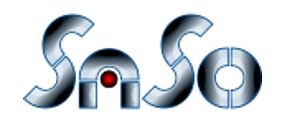SASO 2018
07.09.201812th IEEE International Conference on Self-Adaptive and Self-Organizing Systems — 3-7 September 2018, Trento, Italy
Part of FAS* - Foundations and Applications of Self* Systems
Co-located with: IEEE International Conference on Autonomic Computing (ICAC 2018)
Welcome
The 2018 edition of the SASO conference series will be held in Trento, Italy, in the week of September 3-7, 2018. SASO is part of FAS*, a common umbrella for two closely related but independent conferences (SASO and ICAC) with shared events including workshops, tutorials, doctoral symposia, etc.
The aim of the Self-Adaptive and Self-Organizing systems conference series (SASO) is to provide a forum for the foundations of a principled approach to engineering systems, networks and services based on self-adaptation and self-organization. The complexity of current and emerging networks, software and services, especially in dealing with dynamics in the environment and problem domain, has led the software engineering, distributed systems and management communities to look for inspiration in diverse fields (e.g., complex systems, control theory, artificial intelligence, sociology, and biology) to find new ways of designing and managing such computing systems. In this endeavor, self-organization and self-adaptation have emerged as two promising interrelated approaches. Many significant research problems exist related to self-adaptive or self-organizing systems. A challenge in self-adaptation is often to identify how to change specific behavior to achieve the desired improvement. Another major challenge is to predict and control the global system behavior resulting from self-organization. Yet more challenges arise from the confluence of self-adaptation with self-organization. For instance, how do self-* mechanisms that work well independently operate in combination? How are meso-level structures formed which leverage micro-level behavior to achieve desirable macro-level outcomes, and avoid undesirable ones?
The twelfth edition of the SASO conference embraces the inter-disciplinarity and the scientific, empirical and application dimensions of self-* systems; it thus aims to attract participants with different backgrounds, to foster cross-pollination between research fields, and to expose and discuss innovative theories, design principles, frameworks, methodologies, tools, and applications.
Scope
The twelfth edition of the SASO conference embraces this interdisciplinary nature, and welcomes novel contributions to both the foundational and application-focused dimensions of self-adaptive and self-organizing systems research. We are looking for contributions that present new fundamental understanding of self-adaptive and self-organizing systems and how they can be engineered and used. The topics of interest include, but are not limited to:
- Self-* Systems theory: nature-inspired and socially-inspired paradigms and heuristics; inter-operation of self-* mechanisms; theoretical frameworks and models; control theory;
- Self-* System properties: robustness; resilience; stability; anti-fragility; diversity; self-reference and reflection; emergent behavior; computational awareness and self-awareness;
- Self-* Systems engineering: reusable mechanisms and algorithms; design patterns; architectures; methodologies; software and middleware development frameworks and methods; platforms and toolkits; multi-agent systems;
- Theory and practice of self-organization: self-governance, change management, electronic institutions, distributed consensus, commons, knowledge management, and the general use of rules, policies, etc. in self-* systems;
- Theory and practice of self-adaptation: mechanisms for adaptation, including evolution, logic, learning; adaptability, plasticity, flexibility;
- Socio-technical self-* systems: human and social factors; visualization; crowdsourcing and collective awareness; humans-in-the-loop; ethics and humanities in self-* systems;
- Data-driven approaches to self-* systems: data mining; machine learning; data science and other statistical techniques to analyze, understand, and manage the behavior of complex systems;
- Self-adaptive and self-organizing hardware: self-* materials; self-construction; reconfigurable hardware;
- Self-* Systems Education: experience reports; curricula; innovative course concepts; methodological aspects of self-* systems education;
- Applications and experiences with self-* systems: smart grid, smart cities, smart homes, adaptive industrial plants, cyber-physical systems; autonomous vehicles and robotics; traffic management; self-adaptive cyber-security; Internet of Things; fog/edge computing; etc.
Important Dates
Abstract submission April 16, 2018 Paper submission April 23, 2018 Notification June 4, 2018 Camera ready copy due July 2, 2018 Conference September 3-7, 2018



